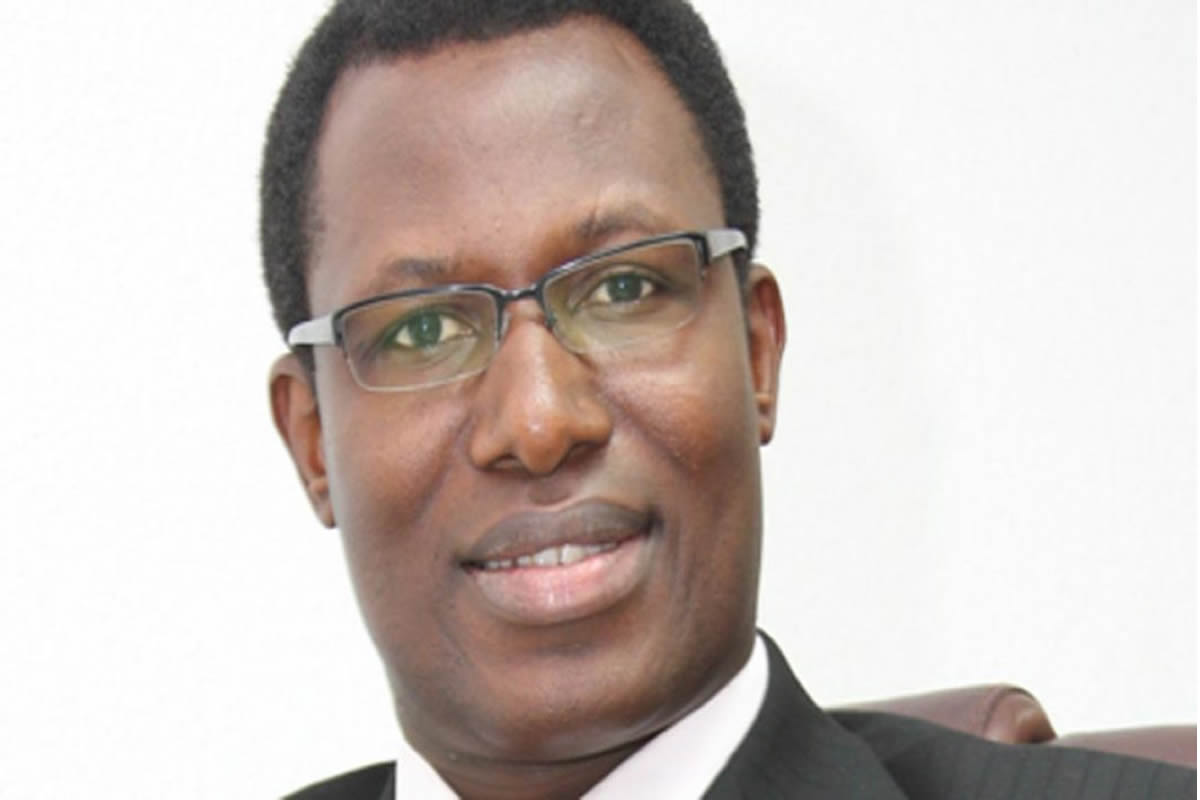ADEYEMI ADEPETUN, in this report, samples the views of stakeholders in the information and communications technology (ICT)/telecoms sector. While many see huge prospects based on past performances, there is apprehension that without sound and people-friendly policies, the sector will lose the gains of the previous years.
The information and communications technology/telecoms (ICT) sector arguably was the star performer of the global economy in 2020. In Nigeria, it not only contributed significantly to the country’s Gross Domestic Product (GDP), the industry to a large extent bridged the gap created by the forced lockdown, induced by the coronavirus pandemic.
With over a year into the COVID-19 crisis, and no sign of backing down, at least for now, people, businesses, churches, schools, government institutions, among others discovered, adopted, and adjusted to the new normal, where it became possible to conduct classes, services, meetings, and seal deals online without physical interactions. Even the Federal Executive Council meetings went online.
The new normal has come to stay! The world has adjusted, and life continues, thanks to technology.
The performance of the ICT sector is expected to continue on an upward trajectory, even in Nigeria. However, stakeholders in the country’s ICT sector believed strongly that it is government’s policies that will shape the performance of the sector. According to them, there is a need to tread softly.
Those who spoke with The Guardian, include the Chairman of the Association of Licensed Telecoms Operators of Nigeria (ALTON), Gbenga Adebayo; President, Association of Telecoms Companies of Nigeria (ATCON), Ikechukwu Nnamani; President of the Institute of Software Practitioners of Nigeria (ISPON), Chinenye Mba-Uzoukwu; National Coordinator, Nigeria, Alliance for Affordable Internet (A4AI), Olusola Teniola, and the Oracle of the Industry, Chris Uwaje.
ALTON sees expansion, zero-tariff reduction but fears brain drain
Adebayo disclosed that there will be more coverage of some parts of the country currently not covered.
According to him, 3G coverage remains higher than 4G, but he’s aware that members are making efforts to improve coverage of the country, especially to enhance easy access to data, improve value-added services, and deeper rural penetration.
The ALTON Chairman categorically stated that he cannot guarantee a reduction in end-user prices because certainly, the cost of producing services is astronomically high in the country. He said the cost of taxes and levies remain high and have refused to go down.
According to him, it has become a routine effort in getting the states to eliminate the case of multiple taxation and levies.
“So, the operating environment remains very high when it comes to telecoms services being seen as a source of internal revenue for states. The operating environments in some number of states remain as hostile as anything we have had in the past. Consequent to that, I will say people should not be too optimistic to the extent of expecting a reduction in end-user price. I will be cautious about that,” he stated.
In terms of human capital development, Adebayo said the country would have to do more. He disclosed that Nigeria, and indeed, the ICT sector is fast losing lots of its young talents to other economies that provide a social guarantee. “Lots of our young people are leaving because they see this environment as hostile, which neither encourage nor guarantee their future. We believe that it is an issue that warrants discussion at a higher level of government.”
Speaking about the Federal Government induced NIN-SIM registration; Adebayo said there is a need to handle the matter very carefully.
“I feel so because, if the right decision is not made and information is not passed by the government and the government is led to take the wrong decision, it can destroy the good of the industry. So, at our level as a stakeholder, we are working with the government. We are on the Ministerial Committee. The advice to the government is we should continue to thread with caution because telecoms today is the driver of the economy. If you put the subscribers at risk, a significant one for that matter, the risk is on the entire economy,” he stated.
Adebayo believed that such a challenge will also send wrong signals to investors and those, who may be willing to do business in Nigeria.
Of course, Adebayo said Nigeria deserves a reliable and credible national database, and the industry is committed to working with all the stakeholders to get this done.
The ALTON Chairman is optimistic that the sector will still have one of the highest FDIs despite all these challenges that the economy faces.
“We still believe that we shall continue to have one of the highest contributions to GDP, but for that to happen, policies have to be consistent, the regulatory environment has to be right, the investment climate has to be ripe and attractive and then people can stay, and foreigners can come in,” he stated.
ATCON demand state’s cooperation on ICT infrastructure
Recalling the last 12 months, the President of ATCON, Ikechukwu Nnamani, described 2020 as a strange year, which no one anticipated.
While appreciating God for sustenance, Nnamani said from a business perspective, it was challenging for most people. He said those in the telecoms and ICT space witnessed more demand for services and this required major upgrades of the available infrastructure
Going into 2021, he said there will be more digital development. According to him, ATCON anticipates that the impact of the COVID-19 pandemic will continue throughout 2021, “so there will be more demand for telecom and ICT services and the available infrastructure will be further stretched. This calls for the implementation of new ICT infrastructure both on a state by state basis as well as on a national basis. The infrastructure required goes beyond transmission infrastructure using fiber or wireless medium but also includes content hosting facilities and distribution to the last mile.”
He assured that ATCON will continue to support the subscribers through the provision of efficient and cost effective services. “We supported the country throughout 2020 despite the challenges of COVID-19 and we will continue to do so in 2021,” he stated.
A4AI seeks actionable efforts around broadband
The Nigeria National Coordinator, Alliance for Affordable Internet (A4AI), Olusola Teniola, is optimistic that the telecoms sector is on a sound footing as already highlighted by the achievements earlier shared by the Executive Vice Chairman of NCC, Prof. Umar Danbatta weeks back.
According to him, one of the strengths of this industry that mustn’t go unnoticed is the resilience of the telecoms networks both in terms of uptime, an enabling platform for all other sectors and the vibrancy of sustainable ideas brought on by the players to compete for the customers’ wallet.
Also, Teniola said 2020 demonstrated the many opportunities and possibilities for further growth both directly and indirectly to the economy. He projected a telco-driven and telco-led digital financial inclusion that fully utilises the capabilities of the mobile device and empowers the youth to exploit their raw talents.
To him, the opportunities are many and the most obvious one is to make connectivity ubiquitous, this means achieving 70 per cent individual broadband penetration as soon as possible and definitely by 2025.
“Broadband is the digital infrastructure required to digitally transform our economy. Without Broadband our economy is not going anywhere. Our singular focus over this year should be how we reach every community using broadband to facilitate meaningful Internet access. Our challenge is FOREX and funding to be able to achieve all the recommendations in the Nigeria National Broadband Plan 2020-25. We look forward to the next six months to work with multi-stakeholders in overcoming the many challenges that exist,” he stated.
Teniola noted that the fundamental issue in keeping the sector alive and active in 2021 is for the government to ensure a conducive business environment exists for the private sector to have confidence in their investments in the sector.
According to him, any policy formulated needs to take into full cognisance that ICT is private sector-led and driven and that the more positive policies that support the growth of the sector should be pursued at all times.
Software promotion and competitiveness
To the oracle of the ICT sector, Chris Uwaje, software development must be prioritized.
Uwaje, the Chairman, Mobile Software Nigeria, each year, every country must re-vision its IT strategy, and each must focus on its core-competence.
Every nation’s core-competence, according to him, is anchored on the ability of her people to be creative and innovate.
“Regrettably, each nation’s technology potency is built on her research capabilities. In other words, you cannot harness technology without research. The best those nations without a strong tech-research foundation can do are to consume what research-based nations have created. There is no magic to the above,” he stated.
He said currently, at the barest minimum, Nigeria’s ICT core-competence resides in the software intelligence engineering ecosystem.
According to him, building, promoting and advancing large national software and electronic engineering capabilities is the most strategic and shortest feasible timeline to Nigeria’s IT success story.
“Our lead advantage is that we have a large pool of knowledgeable Youth with global imagination. We need to build 250.000 IT Software-Sharp mind capabilities yearly for the next four years to enter the global Information Society landscape. Most importantly, the government must overtly and covertly fund the process with intensity. Going forward our aim is to build about five million high skilled software engineers in the next seven years. It’s a matter of life and death for prosperity and digital security and national survivability,” Uwaje warned.

On his part, President of ISPON, Mba-Uzoukwu, said the activities of the Institute will build on the foundational work done in the past two decades by continuing to implement through the five dimensions, programmes that include building human capital in software engineering and services; improve awareness of software Nigeria; establish trustworthiness through software assurance and quality certifications; enhance talent discovery and innovation capacity, and align strongly with national priorities for domestic and export of technology products and services.
 Gistfox Your News Window To The World
Gistfox Your News Window To The World 




